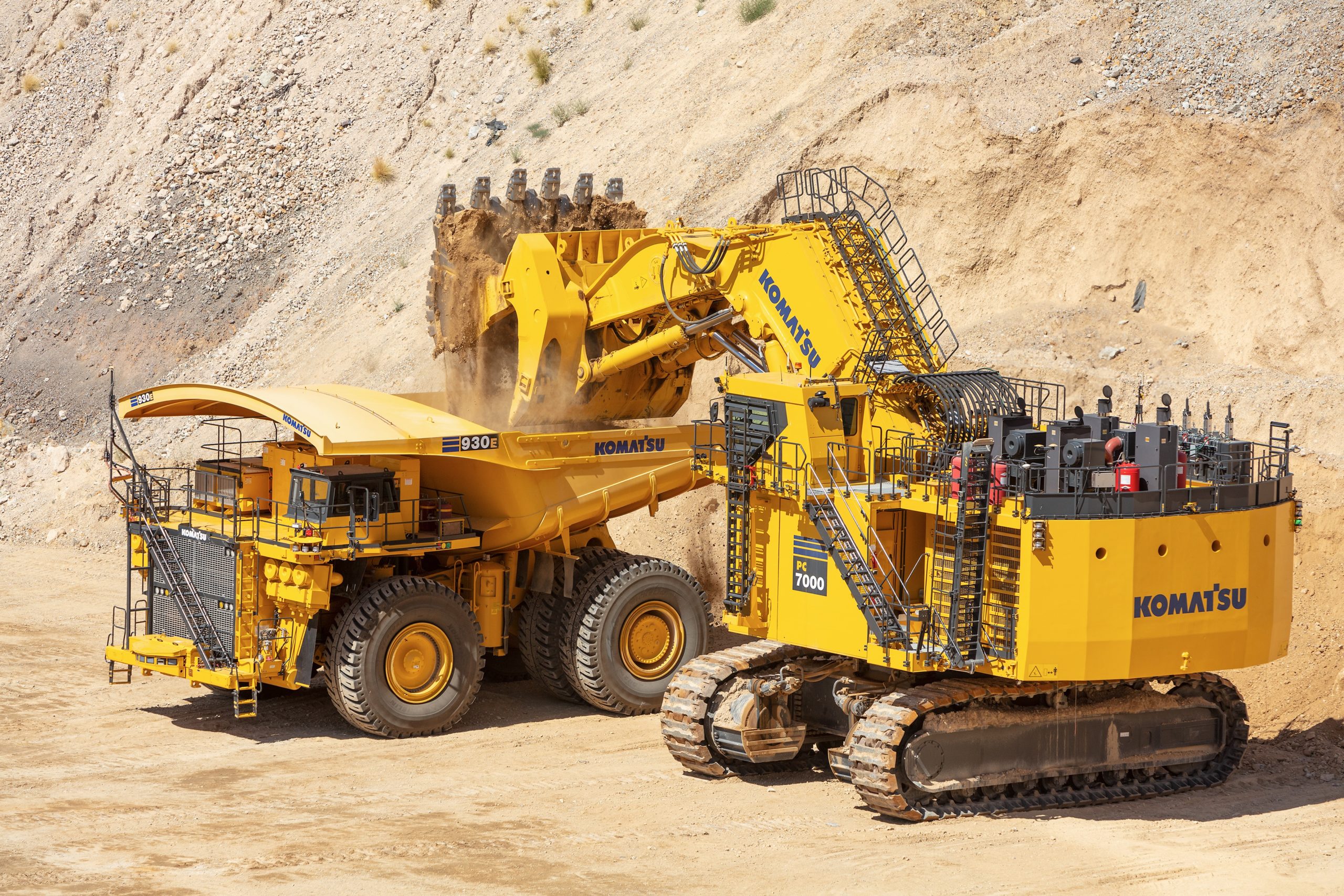
I was in 1902 that a mining engineer by the name of Georges Bia first opened up a sales office in Brussels. It is here that the routes of the BIA Group can be traced back to. Today, 113 years later, BIA exists as a leading international company in the field of machine distribution for the civil engineering and construction industries, with its head offices remaining in Belgium.
“It was in 1948 that business for the company really began to take off when Georges Bias son, Jacques Bia, established three companies, two distribution companies based in Brussels and the Congo (the BIA Technical Office), and a mechanical repair company in the Congo,” explains Marketing Manager, Cedric Leturcq.
BIA would continue to evolve and grow in the subsequent decades, however it was in 1998 that the company’s development began to accelerate dramatically with the company signing an exclusive distribution contract with Komatsu for six French-speaking African countries. By 2003 this figure had grown to 11 and today the company can be found holding exclusivity rights to Komatsu equipment in 15 different nations.
It was in 2006 that BIA’s Export Department transformed into BIA, a subsidiary that is today responsible for all of BIA’s activities in Africa. In addition to its work on behalf of Komatsu, the company is equally proud to be distributors for a host of other premium brands including Sandvik, Bomag, Cummins, Tecnogen and Terex Cranes.
With the continent continuing to prosper there has understandably been a continued influx of international companies arriving in Africa in recent years. One of the things that Leturcq and others have noticed about a number of these companies is the fact that they arrive with little knowledge of African culture or of the political and economic barriers that exist. This is where BIA becomes a partner of choice.
“While we have been representing Komatsu since 1998, BIA has been present in Africa for more than a century,” Leturcq continues. “Therefore it is safe to say that we possess a strong knowledge of Africa culture and how best to conduct business here. Perhaps equally as important is the fact that we know first-hand how one should never underestimate the complexities that exist in this part of the world.”
What the majority of the companies now entering the African market share in common is a desire to focus almost exclusively on their core business, in this case production. To this extent they are turning to companies to provide associated services. Where BIA looks to position itself ahead of its competition in this regard is by offering a complete a-to-z service whereby its project management teams can oversee all manner of tasks including logistics, the organisation of spare parts, assembly, repairs and overhauls. Of course offering this type of service also allows a client to have direct control of their costs, something that is very much a feather in the cap for BIA.
“Our approach to business has always been very customer support orientated,” Leturcq states, “to the extent where today 75 percent of our human resources fall into the after sales side of the business. It is this pool of technicians, engineers, engine specialists and mechanics that we are keen to continue developing. Our strategy has never been to simply lead the market by price or volume, rather we have strived to position ourselves as the supplier of choice when it comes to quality.”
In more recent times BIA has found itself working on a number of large-scale greenfield projects including First Quantum’s Sentinel mine project in Zambia. These are large scale undertakings starting from zero and in the case of the Sentinel project BIA was consulted directly about all manner of things from the definition of equipment to what infrastructure would be required in terms of workshops, re-build centres, warehouses and training facilities.
A number of similar projects are on the horizon for BIA and symbolise the big ambitions that the company has. “As strange as it sounds,” Leturcq says, “perhaps one of the biggest challenges we have faced in the last decade is just how fast we have grown. To sustain this growth we have taken on an increasingly large number of people, going from having around 400 Belgian and African people working for us across the continent in 2009 to more than 1,000 today. In response to this we have worked hard to restructure our organisation in such a way that we are now able to not only retain the talent that we have, but also provide the training needed to create the next generation of workers.”
The key to BIA continued success, according to Leturcq, is a dedication to continued investment, not only in its human resources but also its infrastructure. To this end the company is looking to build further upon the five additional branches that it opened across Africa in 2012, with a new branch set to open in Liberia imminently and plans to increase its presence in Cameroon expected to come into effect in early 2014.
“Another important development to note,” Leturcq concludes, “is that we are now in the process of implementing an SAP IT system across the business. This is admittedly a massive investment, however we believe that, given our size, without a strong IT system we lack the optimum level of efficiency that we desire. We recognise that as we continue to grow that this kind of investment becomes all the more necessary and we will not hesitate to seize the opportunity to better ourselves in the years ahead should the opportunity present itself.”
Written by Will Daynes, research by Gareth Hardy
DOWNLOAD
 BIA-Africa-Mining-Aug13-Bro-s_0.pdf
BIA-Africa-Mining-Aug13-Bro-s_0.pdf












